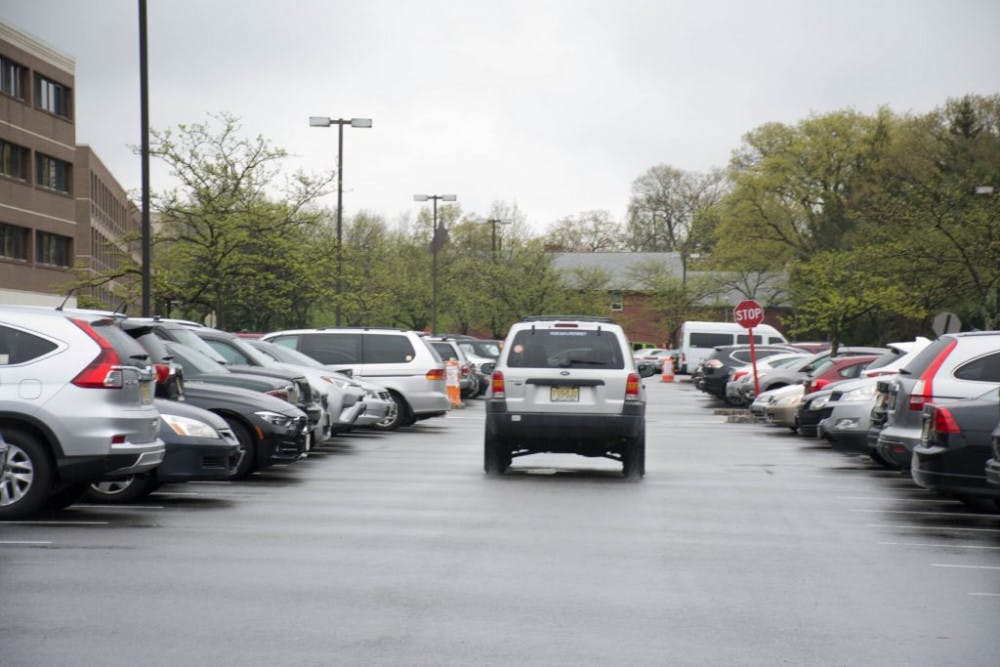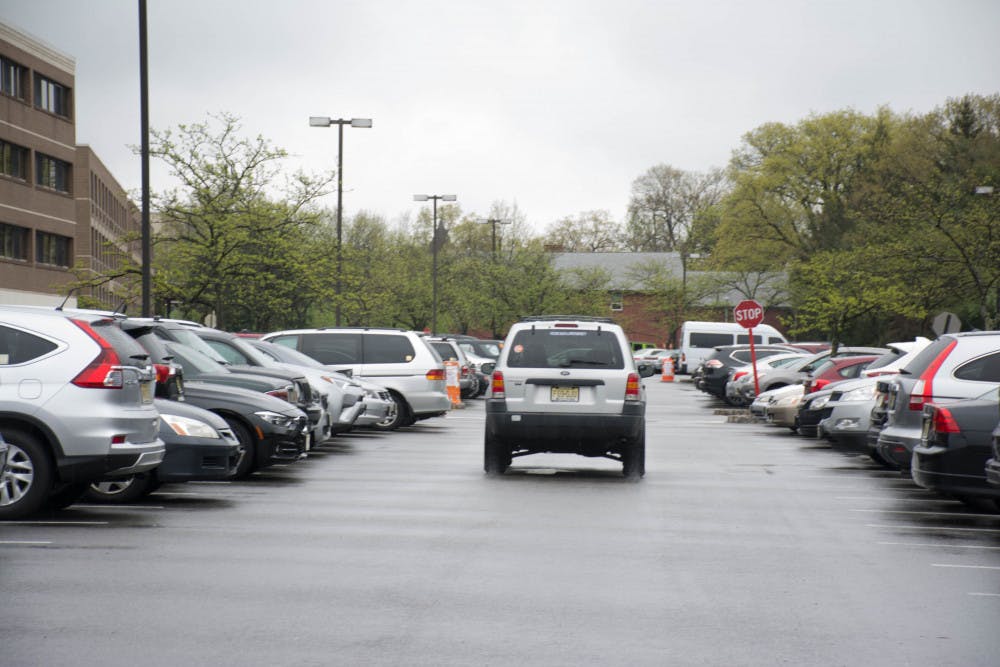The Student Government Association (SGA)’s Student Life Committee is beginning to compile data on parking prices at other universities in order to determine if the cost of a parking permit could be lowered at Seton Hall.

An academic year parking pass for a commuter at Seton Hall costs $327.42, while a resident pass costs $350. The SGA initiative was formed amid complaints by many students that parking costs at Seton Hall are excessively high.
SGA Senator Christine Connelly, Vice Chair of the Student Life Committee, is spearheading the initiative and hopes the data could inspire the University to lower parking fees.
Connelly hopes to compare the prices of Seton Hall’s parking passes with the parking rates at universities of similar size and demographics.
“I am researching other schools in New Jersey, other Catholic universities, and universities similar to our size,” Connelly said. “After choosing those colleges, I, along with a couple other people, are finding the price of a year long parking permit, the number of parking spots available to the students, as well as what percentage of the population commutes.”
Though not a commuter, Connelly decided to start the initiative after hearing friends and classmates complain about the prices.
“I have heard on many occasions about the prices of the parking permits [being] a problem,” Connelly said. “I personally do not commute so I do not understand this issue, but many of my friends, and the Seton Hall population, commute and have grievances regarding the prices.”
Anna Furman, a sophomore biology major, believes that the price of parking should be lowered, as it is an additional financial burden on top of her tuition.
“[Parking permits] are an additional weight on my tuition,” Furman said. “It takes me about four months as a part time employee to make enough for the school parking.
Commuters are not the only ones struggling to pay for their parking permits. Students with medical conditions which require a car on campus also need to pay for their parking.
Freshman physics major Brooke Richards lives on campus, but had to pay $189 for a parking pass this semester as she is required to drive to physical therapy appointments.
“I feel like I pay too much, especially because it is a medical exception pass,” Richards said. “It should not be that expensive to park my car in a garage.”
Richards also feels that the parking costs are excessive on top of tuition.
“I just feel like I’m adding more money onto my tuition bill, which is already piling up, so I see it as such a dread to pay for it,” Richards said.
Sophomore diplomacy and international major Joaquin Matamis feels that the fee is a “necessary evil,” but that the money should be used to improve the availability of parking.
“Yes, the parking deck is large, but is wholly inconvenient and out of the way from most classrooms on campus,” Matamis said. “The parking spots themselves are too small, making cars more prone to scuffing and accidents.
Matamis would be content with the fee if it was used to offer more convenient, larger parking spaces.
“Overall, there is a lack of comfortable space to get in and out of one’s car,” Matamis said. “If I was able to see more convenient, comfortable parking spaces or even a more diverse offering of spots, I would be more satisfied with the amount being paid.”
Prices for parking were adjusted for the 2019-2020 academic year and are determined by the University Cabinet, according to Parking Services director Ann Szipszky.
Szipszky is not aware of any discussions at this time within Parking Services or at the University Cabinet regarding lowering prices of parking.
Daniel O’Connor can be reached at daniel.oconnor1@student.shu.edu.





